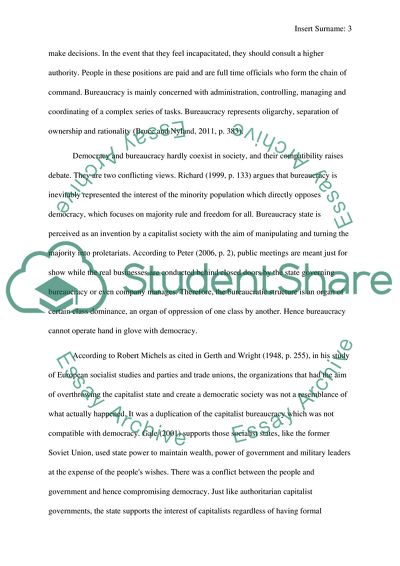Cite this document
(The Conflict Between Bureaucracy and Democracy Essay Example | Topics and Well Written Essays - 1500 words - 1, n.d.)
The Conflict Between Bureaucracy and Democracy Essay Example | Topics and Well Written Essays - 1500 words - 1. https://studentshare.org/politics/1813490-why-is-bureaucracys-relationship-to-democracy-so-conflicted
The Conflict Between Bureaucracy and Democracy Essay Example | Topics and Well Written Essays - 1500 words - 1. https://studentshare.org/politics/1813490-why-is-bureaucracys-relationship-to-democracy-so-conflicted
(The Conflict Between Bureaucracy and Democracy Essay Example | Topics and Well Written Essays - 1500 Words - 1)
The Conflict Between Bureaucracy and Democracy Essay Example | Topics and Well Written Essays - 1500 Words - 1. https://studentshare.org/politics/1813490-why-is-bureaucracys-relationship-to-democracy-so-conflicted.
The Conflict Between Bureaucracy and Democracy Essay Example | Topics and Well Written Essays - 1500 Words - 1. https://studentshare.org/politics/1813490-why-is-bureaucracys-relationship-to-democracy-so-conflicted.
“The Conflict Between Bureaucracy and Democracy Essay Example | Topics and Well Written Essays - 1500 Words - 1”. https://studentshare.org/politics/1813490-why-is-bureaucracys-relationship-to-democracy-so-conflicted.


